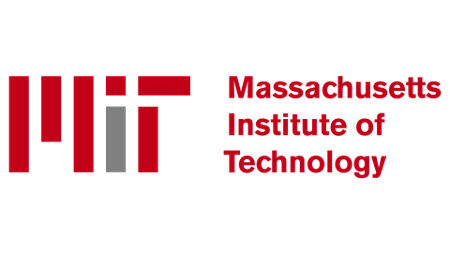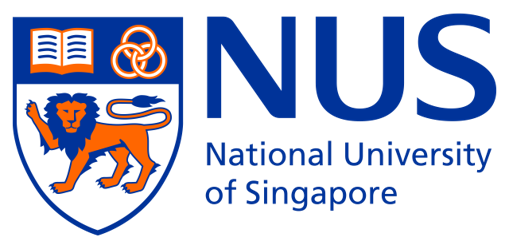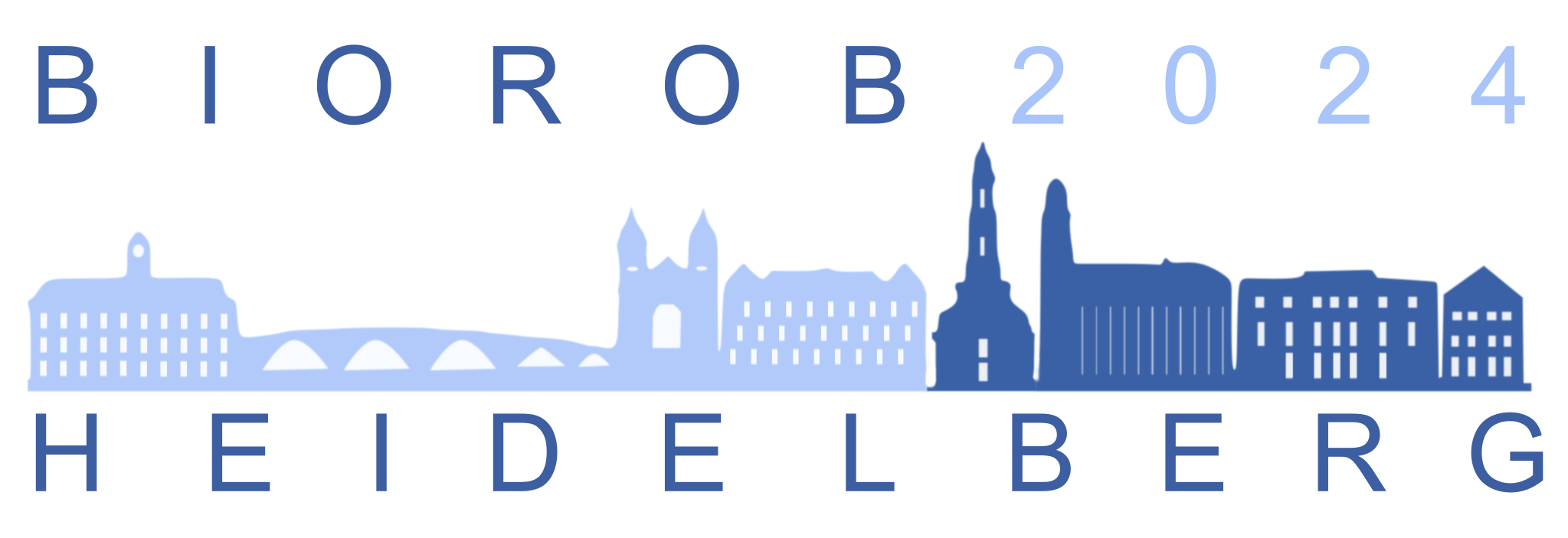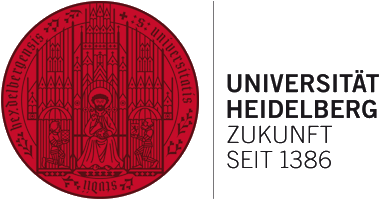IEEE RAS EMBS 10th International Conference on Biomedical Robotics and Biomechatronics (BioRob 2024), 1-4 September 2024 Heidelberg, Germany
aaa
Invited Speakers
T
PLENARY SPEAKERS
aa
Prof. Aude Billard

Bio
Aude Billard is full professor, head of the LASA laboratory and the Associate Dean for Education in School at the School of Engineering at the Swiss Institute of Technology Lausanne (EPFL). Prof Billard currently serves as the President of the IEEE Robotics and Automation Society, director of the ELLIS Robot Learning Program and co-director of the Robot Learning Foundation, a non-profit corporation that serves as the governing body behind the Conference on Robot Learning (CoRL), and leads the Innovation Booster Robotics, a program funding technology transfer in robotics and powered by the Swiss Innovation Agency, Innosuisse.
Prof Billard holds a BSc and MSc in Physics from EPFL and a PhD in Artificial Intelligence from the University of Edinburgh. Prof Billard is an IEEE Fellow and the recipient of numerous recognitions, among which the Intel Corporation Teaching award, the Swiss National Science Foundation career award, the Outstanding Young Person in Science and Innovation from the Swiss Chamber of Commerce, the IEEE RAS Distinguished Award, and the IEEE-RAS Best Reviewer Award. Dr. Billard was a plenary speaker at major robotics, AI and Control conferences (ICRA, AAAI, CoRL, HRI, CASE, ICDL, ECML, L4DC, IFAC Symposium, ROMAN, Humanoids and many others) and acted on various positions on the organization committee of numerous International Conferences in Robotics. Her research spans the fields of machine learning and robotics with a particular emphasis on fast and reactive control and on safe human-robot interaction. This research received numerous best conference paper awards, as well as the prestigious King-Sun Fu Memorial Award for the best IEEE Transaction in Robotics paper, and is regularly featured in premier venues (BBC, IEEE Spectrum, Wired).
Prof. Sandra Hirche

Bio
Sandra Hirche holds the TUM Liesel Beckmann Distinguished Professorship and heads the Chair of Information-oriented Control in the Department of Electrical and Computer Engineering at Technical University of Munich (TUM), Germany (since 2013). She received the diploma engineer degree in Aeronautical and Aerospace Engineering in 2002 from the Technical University Berlin, Germany, and the Doctor of Engineering degree in Electrical and Computer Engineering in 2005 from the Technische Universität München, Munich, Germany. From 2005-2007 she has been a PostDoc Fellow of the Japanese Society for the Promotion of Science at the Fujita Laboratory at Tokyo Institute of Technology, Japan. Prior to her present appointment she has been an Associate Professor at TUM.
Her main research interests include learning, cooperative, and networked control with applications in human-robot interaction, multi-robot systems, and general robotics. She has published more than 200 papers in international journals, books and refereed conferences. She has received multiple awards such as the Rohde & Schwarz Award for her PhD thesis, the IFAC World Congress Best Poster Award in 2005 and – together with students – Best Paper Awards of IEEE Worldhaptics and IFAC Conference of Manoeuvring and Control of Marine Craft in 2009 and the Outstanding Student Paper Award of the IEEE Conference on Decision and Control 2018. In 2013 she has been awarded with an ERC Starting Grant on the “Control based on Human Models” and in 2019 with the ERC Consolidator Grant on “Safe data-driven control for human-centric systems”. Sandra Hirche is Fellow of the IEEE and received the IEEE Control System Society Distinguished Member Award.
Prof. Shoji Takeuchi

Bio
Shoji Takeuchi received the B.E, M.E., and Dr. Eng. degrees inmechanical engineering from the University of Tokyo, Tokyo, Japan, in1995, 1997, and 2000, respectively. He is currently a Professor in theDepartment of Mechano-Informatics, Graduate School of InformationScience and Technology, University of Tokyo. He has authored more than230 peer-reviewed publications and filed over 140 patents. He has beenrecognized with numerous honors including Young Scientists’ Prize, the Commendation for Science and Technology by the Minister of Education,Culture, Sports, Science and Technology in 2008, the JSPS prize fromthe Japan Society for the Promotion of Science in 2010, ACS AnalyticalChemistry Young Innovator Awards in 2015, and UNESCO Netexplo AwardWinner 2019. JSME Micro-Nano Science & Technology Achievement Award in2022. His current research interests include cultivated meat, 3Dtissue fabrication, bioMEMS, implantable devices, artificial lipidbilayer systems, and biohybrid machines.
Prof. Pietro Valdastri

Bio
Pietro Valdastri is Full Professor and Chair in Robotics and Autonomous Systems at the University of Leeds. He directs the Science and Technologies Of Robotics in Medicine (STORM) Lab, focusing on intelligent robots to fight cancer, the Institute of Robotics, Autonomous System and Sensing (IRASS), and the Robotics at Leeds network. He received his Laurea degree in Electronic Engineering from the University of Pisa in 2001 and his PhD in Biomedical Engineering from Scuola Superiore Sant’Anna in 2006. After the PhD, he became Assistant Professor in Biomedical Engineering at the BioRobotics Institute of Scuola Superiore Sant’Anna. In 2011, Prof Valdastri moved to Vanderbilt University as an Assistant Professor in Mechanical Engineering until 2016, when he relocated to Leeds.
He has published more than 150 peer reviewed journal papers in the field of medical robotics and has been principal investigator on grants in excess of $24M supported by NSF, NIH, ERC, EU-H2020, Cancer Research UK, The Royal Society, EPSRC, Innovate UK and industry, including the NSF CAREER Award with the proposal “Lifesaving Capsule Robots” in 2015, the ERC Consolidator Grant Award with the proposal “NoLiMiTs – Novel Lifesaving Magnetic Tentacles” in 2019, and the KUKA Innovation Award for his robotic colonoscopy platform in 2019. Prof. Valdastri is a Royal Society Wolfson Research Fellow, a Fellow of the Institute of Electrical and Electronics Engineers (IEEE), the Editor for Medical and Rehabilitation Robotics of the IEEE Robotics and Automation Letters, and a member of the steering committee of the International Society for Medical Innovation and Technology (iSMIT). STORM Lab’s research has been featured by several news outlets, including the BBC, The Times, The Washington Post, The Financial Times, New Scientist, The Spectator, WIRED, IEEE Spectrum, Medgadget, Daily Mail, The Engineer, Ingenia Magazine, Medical Design Technology Magazine, Medical Xpress, Newswise, NSF Science Now. Prof Valdastri also completed a successful entrepreneurial cycle with WinMedical s.r.l., a company he co-founded in 2009 and that was acquired by a larger enterprise in 2017. He recently started a new company, Atlas Endoscopy Limited, to bring his robotic colonoscopy platform to patients.
Prof. Helen Huang

Bio
Dr. Helen Huang is the Jackson Family Distinguished Professor in the Joint Department of Biomedical Engineering at North Carolina State University (NC State) and the University of North Carolina at Chapel Hill (UNC) and the Director of the Closed-Loop Engineering for Advanced Rehabilitation (CLEAR) core. She is also the co-director of NIDILRR funded Rehabilitation Engineering Research Center. Her research interest lies in neural-machine interfaces, wearer-robot interaction and co-adaptation, robotic prosthetics and exoskeletons, and human motor control/biomechanics. She was a recipient of the Delsys Prize for Innovation in Electromyography, NIDILRR Switzer Fellowship, NSF CAREER Award, ASA Statistics in Physical Engineering Sciences Award, and NC State ALCOA Foundation Distinguished Engineering Research Award. She is a Fellow of AIMBE, Fellow of IEEE, NC State faculty scholar, and a member in the Society for Neuroscience, BMES, American Society of Biomechanics, and AAAS. She is the incoming Editor-in-Chief for the IEEE Transactions on Neural Systems and Rehabilitation Engineering and an Editorial Board Member for IEEE Transactions on Biomedical Engineering.
Prof. Ellen Roche

Bio
Ellen Roche is the Latham Family Career Development Professor at the Department of Mechanical Engineering and the Institute for Medical Engineering and Science at MIT. She directs the Therapeutic Technology Design and Development Lab. Her research focuses on applying innovative technologies to the development of cardiac devices. Her research includes development of novel devices to repair or augment cardiac function using disruptive approaches such as soft robotics. Her work has been published in Nature Biomedical Engineering, Science Translational Medicine, Science Robotics, Advanced Materials among others. She is the recipient of multiple awards including the Wellcome Trust Seed Award in Science, a National Science Foundation CAREER Award, an NIH Trailblazer Award, a Hood Award for Excellence in Child Health Research, the LabCentral Ignite Golden Ticket and the inaugural Future Founders Grand Prize.
1
1
KEY INNOVATORS IN BIOROBOTICS
1
Prof. Hugh Herr

Bio
Hugh Herr is creating bionic limbs that emulate the function of natural limbs. Time Magazine coined Dr. Herr the ‘Leader of the Bionic Age’ because of his revolutionary work in the emerging field of Biomechatronics – technology that marries human physiology with electromechanics. A double amputee himself, he is responsible for breakthrough advances in bionic limbs that provide greater mobility and new hope to those with physical disabilities. He is Professor of Media Arts and Sciences and Associate Investigator at the McGovern Institute at MIT. Professor Herr directs the MIT Biomechatronics Group and co-directs the K. Lisa Yang Center for Bionics.
Herr is the author and co-author of over 350 peer-reviewed manuscripts and patents, chronicling the science and technology behind his many innovations. These innovations include powered leg exoskeletons and prostheses, and neural interfacing technologies. A powered ankle-foot prosthesis called EmPower, which emulates the action of a biological leg and, for the first time, provides amputees with a natural gait, was named to the list of Top Ten Inventions in the health category by TIME magazine.
Today the EmPower Ankle-Foot Prosthesis has been clinically shown to be the first leg prosthesis in history to reach human normalization, allowing amputees to walk with normal levels of speed, musculoskeletal stress, and metabolism. His research group also developed the first autonomous exoskeleton shown to reduce the metabolic cost of walking. Herr’s MIT group has also invented novel mechanoneural Interfaces to the peripheral nervous system, surgical amputation procedures combined with neural interfacing technologies that enable persons with limb loss to neurally control their synthetic limbs, as well as to experience natural proprioceptive and cutaneous sensations. Herr has received many accolades for his groundbreaking innovations, including the 13th Annual Heinz Award for Technology, the Economy and Employment; the Smithsonian American Ingenuity Award in
Technology, the 14th Innovator of the Year Award, and the 41st Inventor of the Year Award, the Princess of Asturias Award for Technical & Scientific Research, and the Liberty Museum Genius Award. Hugh’s story has been told in a National Geographic film, Ascent: The Story of Hugh Herr; and episodes and articles featured in CNN, The Economist, Discover and Nature.
Prof. Robert Riener

Bio
Robert Riener studied Mechanical Engineering at TU München, Germany, and University of Maryland, USA. He received a Dr.-Ing. degree in Engineering from the TU München in 1997. After postdoctoral work from 1998-1999 at Politecnico di Milano and TU München, he became assistant professor at ETH Zurich and the medical faculty of the University of Zurich (“double-professorship”) in 2003. Since 2010 he has been full professor for Sensory-Motor Systems, ETH Zurich. In 2016 Riener became also full professor of medicine at the University of Zurich. Riener’s research focuses on the investigation of the sensory-motor interactions between humans and machines. He is the initiator and organizer of the Cybathlon Championship, which was honored with the European Excellence Award and the Yahoo Sports Technology Award. In 2018 Riener obtained the honorary doctoral degree from the University of Basel. Since 2022 Riener is president of the ICORR.
Prof. Cecilia Laschi

Bio
Cecilia Laschi is Provost’s Chair Professor of robotics at the National University of Singapore, leading the Soft Robotics Lab. She is Co-Director of CARTIN – Centre for Advanced Robotics Technology and Innovation. She is on leave from Scuola Superiore Sant’Anna, Italy, The BioRobotics Institute (Dept. of Excellence in Robotics & AI). She graduated in Computer Science at the University of Pisa and received a Ph.D. in Robotics from the University of Genoa. She received an Honorary Doctorate from the University of Southern Denmark, Odense, in 2023. She was JSPS visiting researcher at the Humanoid Robotics Institute of Waseda University, Tokyo, Japan.
Cecilia Laschi is best-known for her research in soft robotics, an area that she pioneered and contributed to develop at international level. She investigates fundamental challenges for building robots with soft materials, with a bioinspired approach which started with a study of the octopus as a model for robotics. She explores marine applications of soft robots and their use in the biomedical field, with a focus on eldercare. She has worked in humanoid and neuro-robotics, applying brain models in humanoid robots.
She is Editor-in-Chief of Bioinspiration & Biomimetics and Specialty Chief Editor of Soft Robotics in Frontiers in Robotics & AI. She serves in the Editorial Boards of Science Robotics and IEEE Robotics & Automation Letters. She serves as evaluators for the EC (incl. ERC programme), HFSP and national research agencies.
She is IEEE Fellow and member of other scientific societies, like AAAS (American Association for the Advancement of Science), and the IEEE Robotics & Automation Society (RAS), where she was elected twice as AdCom member and is founding co-chair of the Technical Committee (TC) on Soft Robotics. She founded and chaired the 1st IEEE-RAS International Conference on Soft Robotics (RoboSoft) in 2018, serving now in its Steering Committee. She is Co-Chair of Gordon Research Conference on Robotics 2024.
She co-founded the spin-off company RoboTech, in edutainment robotics.
Cecilia Laschi is Provost’s Chair Professor of robotics at the National University of Singapore, leading the Soft Robotics Lab. She is Co-Director of CARTIN – Centre for Advanced Robotics Technology and Innovation. She is on leave from Scuola Superiore Sant’Anna, Italy, The BioRobotics Institute (Dept. of Excellence in Robotics & AI). She graduated in Computer Science at the University of Pisa and received a Ph.D. in Robotics from the University of Genoa. She received an Honorary Doctorate from the University of Southern Denmark, Odense, in 2023. She was JSPS visiting researcher at the Humanoid Robotics Institute of Waseda University, Tokyo, Japan.
Cecilia Laschi is best-known for her research in soft robotics, an area that she pioneered and contributed to develop at international level. She investigates fundamental challenges for building robots with soft materials, with a bioinspired approach which started with a study of the octopus as a model for robotics. She explores marine applications of soft robots and their use in the biomedical field, with a focus on eldercare. She has worked in humanoid and neuro-robotics, applying brain models in humanoid robots.
She is Editor-in-Chief of Bioinspiration & Biomimetics and Specialty Chief Editor of Soft Robotics in Frontiers in Robotics & AI. She serves in the Editorial Boards of Science Robotics and IEEE Robotics & Automation Letters. She serves as evaluators for the EC (incl. ERC programme), HFSP and national research agencies.
She is IEEE Fellow and member of other scientific societies, like AAAS (American Association for the Advancement of Science), and the IEEE Robotics & Automation Society (RAS), where she was elected twice as AdCom member and is founding co-chair of the Technical Committee (TC) on Soft Robotics. She founded and chaired the 1st IEEE-RAS International Conference on Soft Robotics (RoboSoft) in 2018, serving now in its Steering Committee. She is Co-Chair of Gordon Research Conference on Robotics 2024.
She co-founded the spin-off company RoboTech, in edutainment robotics.
Prof. Michael Goldfarb

Bio
Michael Goldfarb is the H. Fort Flowers Professor of Mechanical Engineering at Vanderbilt University, with secondary appointments as a professor in Electrical Engineering and Physical Medicine and Rehabilitation. Dr. Goldfarb has authored over 250 publications on topics related to wearable robotics, has been awarded over 50 US patents, was inducted into the US National Academy of Inventors in 2020, and was recognized in 2021 by Stanford University as among the Top 2% of most cited scientists. Among his papers are ones awarded best-paper awards in 1997, 1998, 2003, 2007, 2009, 2013, 2020, and 2022 and others that were finalists for best paper awards in 2015, 2017, and 2020. Research interests includes the development of robotic limbs for upper and lower extremity amputees, and the development of exoskeletons for individuals with spinal cord injury and stroke, including the development of a lower limb exoskeleton now sold as the Indego exoskeleton.
Prof. Sami Haddadin

Bio
Sami Haddadin is founder and Executive Director of the Munich Institute of Robotics and Machine Intelligence (MIRMI) at TUM. His research deals with the fundamentals of robotics and AI for creating intelligent machines. He received degrees in EE, CS and Technology Management from TUM and LMU and a doctorate from RWTH Aachen. He was a research scientist at the DLR and Professor at Leibniz University Hannover. He is chairman of the Bavarian AI Council and recipient of the German President’s Award for Innovation and Leibniz Prize.




